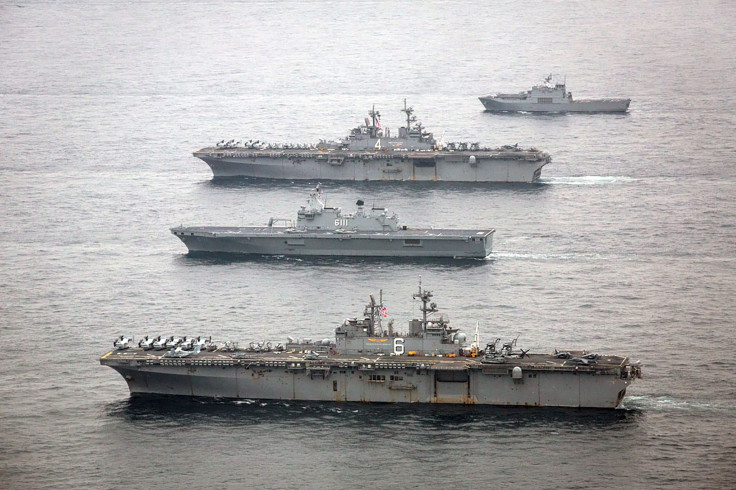South China Sea Controversy: Japan’s Expanding Role With Aid To Philippines, Raises China’s Ire

The Chinese government criticized Japan’s growing role in the South China Sea region Thursday amid calls for Tokyo to expand its patrols in the contested waters to aid American patrols.
“Japan’s prosperity and security relies heavily on regional and global security. For Japan, the No. 1 challenge is the rise of Chinese power,” said Tetsuo Kotani, a senior fellow at the Japan Institute of International Affairs, Stars and Stripes reported Thursday. Kotani called for Japan to join the U.S. in freedom of navigation patrols in the region and help regional allies boost their military capabilities as worries over China’s aggressive moves become more frequent.
Japan and the Philippines signed a defense agreement earlier this month with Manila leasing five TC-90 aircraft to help patrol waters the Philippines views as part of its own territory. Beijing expressed its displeasure with the deal Thursday, telling Tokyo to stay out of the regional controversy.
“If the Philippines’ actions are to challenge China's sovereignty and security interests, China is resolutely opposed,” said Chinese Foreign Ministry spokesman Hong Lei, Reuters reported. “I also want to point out that Japan is not a party to the South China Sea issue, and we are on high guard against its moves. We demand that Japan speak and act cautiously and not do anything to harm regional peace and stability.”
Japan has also provided Vietnam with patrol boats and expanded its own aircraft patrols as China’s biggest regional economic competitor increases its role in the tense dispute.
China has built up its presence in the region, deploying submarines and military equipment. Beijing called the U.S. four-ship patrol of the region earlier this week a “colonial invasion and illegal occupation,” the Associated Press reported.
Over $5 trillion worth of trade passes through the resource-rich South China Sea region on a yearly basis, leading to competing claims from Brunei, China, Malaysia, the Philippines, Taiwan and Vietnam.
© Copyright IBTimes 2024. All rights reserved.






















